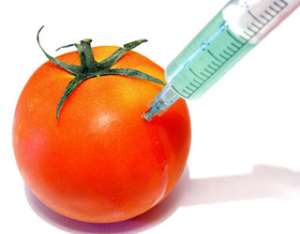
Activists are urging President John Mahama to reject a bill currently in Ghana's parliament which, if passed, could mean the country losing control of its variety of seeds to multinational agribusiness corporations.
President Mahama supports the current Plant Breeder's Bill before Ghana's Parliament, which is scheduled for a Second Reading soon. The Bill is designed to make Ghana a “UPOV 91 compliant state”.
UPOV 91 (International Convention for the Protection of New Varieties of Plants) is a legal convention that protects plant breeders when they create new varieties of plants. It does not protect the plants; rather it protects Intellectual Property Rights of the breeders. International agribusiness corporations want countries to pass UPOV 91-compliant laws because it means huge profits for those companies.
“The bill is a danger to the way we farm and to Ghana's rich variety of seeds,” Ali-Masmadi Jehu-Appiah, chairperson of Food Sovereignty Ghana, a civil society organisation.
“It is a danger to how we develop our own varieties of seeds, and how we farm in Ghana. It is a give-away to foreign agribusiness corporations, which is why UPOV 91 has been nicknamed the Monsanto law in some countries.”
The UPOV 91 compliant Plant Breeders Bill in Ghana is designed to create and serve the interests of an industrial-style, monoculture-based farming system. It is a corporate farming system that is heavily tilted in favour of the commercial seed industry. In Ghana and Africa that means the foreign seed industry. The bill advantages foreign corporations over Ghanaian farmers presently working their own small farms in Ghana. The bill is an action against the interests of smallholder farmers and is aimed at replacing local seed varieties with uniform commercial varieties that are most likely to be imported.
If it becomes law, it will increase the dependency of smallholder farmers on commercial seed varieties, possibly excluding all other varieties. Contracts permitted under this bill will force farmers to buy new seeds every year. These purchases will come from a limited range of foreign seeds. The effect will be the erosion of Ghana's crop diversity. The limited variety of mostly foreign seeds that can be purchased will make the crops far more vulnerable to threats such as new plagues of insect pests, super weeds, plant diseases, and climate change.
The corporate seed industry seeds, often laboratory created genetically engineered GMOs, must be purchased new each planting season. Under the UPOV 91 Plant Breeders Bill farmers may have to pay royalty fees to the corporations if they save and replant their own seeds. Farmers may also have to pay royalty fees to the foreign corporations if they give or sell seeds to neighbouring farmers or sell them in local markets. Ghanaian farmers have always saved seeds to plant the next season.
Food Safety Ghana says the entire point of genetic modification, GMOs, is to control the seed supply in individual countries and around the globe through IPRs (Intellectual Property Rights). UPOV Plant Breeder laws, in compliance with UPOV 91, are the legal tool designed to use IPR to control the seed supply. UPOV laws grant those IPRs that grant corporations rights to seeds. There are no GMO laboratory created crops that are more productive, more resistant to climate change or pests, than seeds produced by conventional breeding techniques and generations of local research.
At the regional level, the Africa Regional Intellectual Property Organization (ARIPO) is in the process of adopting similar, but worse, legislation. The draft legal framework under consideration is not only based on UPOV law, it also creates a centralised regime whereby all decisions concerning protected varieties will be taken at the regional level, superseding national legislation.
This is another major attack on Ghanaian sovereignty, and the sovereignty of African nations. Ghana's own laws can be set aside by this foreign external organization. This completely undermines Ghana's sovereignty to regulate seeds according to national needs and interests.
Source: http://kurunziafrika.wordpress.com/2013/10/25/ghana-president-mahama-urged-to-reject-gmo-seeds-bill/
For Life, the Environment, and Social Justice!
Social Media Outreach
Pan-Africanist International - a grammar of Pan-Africanism and its manners of articulation.
Website: http://www.panafricanistinternational.org/
Twitter: https://twitter.com/#!/PanAfricanists
Facebook: http://www.facebook.com/pages/Pan-Africanist-International/




 Former Kotoko Player George Asare elected SRC President at PUG Law Faculty
Former Kotoko Player George Asare elected SRC President at PUG Law Faculty
 2024 elections: Consider ‘dumsor’ when casting your votes; NPP deserves less — P...
2024 elections: Consider ‘dumsor’ when casting your votes; NPP deserves less — P...
 You have no grounds to call Mahama incompetent; you’ve failed — Prof. Marfo blas...
You have no grounds to call Mahama incompetent; you’ve failed — Prof. Marfo blas...
 2024 elections: NPP creates better policies for people like us; we’ll vote for B...
2024 elections: NPP creates better policies for people like us; we’ll vote for B...
 Don’t exchange your life for wealth; a sparkle of fire can be your end — Gender ...
Don’t exchange your life for wealth; a sparkle of fire can be your end — Gender ...
 Ghana’s newly installed Poland train reportedly involved in accident while on a ...
Ghana’s newly installed Poland train reportedly involved in accident while on a ...
 Chieftaincy disputes: Government imposes 4pm to 7am curfew on Sampa township
Chieftaincy disputes: Government imposes 4pm to 7am curfew on Sampa township
 Franklin Cudjoe fumes at unaccountable wasteful executive living large at the ex...
Franklin Cudjoe fumes at unaccountable wasteful executive living large at the ex...
 I'll 'stoop too low' for votes; I'm never moved by your propaganda — Oquaye Jnr ...
I'll 'stoop too low' for votes; I'm never moved by your propaganda — Oquaye Jnr ...
 Kumasi Thermal Plant commissioning: I pray God opens the eyes of leaders who don...
Kumasi Thermal Plant commissioning: I pray God opens the eyes of leaders who don...
